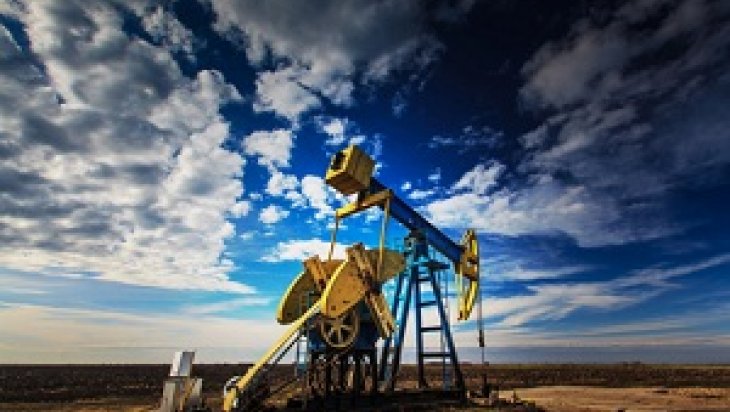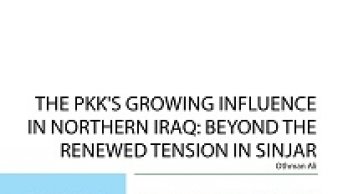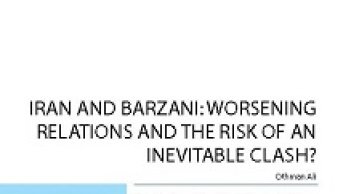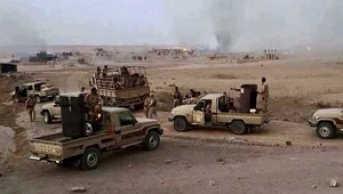Threats to the Oilflow from KRG to Turkey

The crisis of legitimacy in the leadership, hard living conditions, stagnant economy, and the probability of an imminent control by Shiite militias and seizure of oil and gas fields are threats which may put the oil flow from the KRG to Turkey in jeopardy. Northern Iraq is also witnessing rapid and alarmingly growing tensions over the control of oil and gas revenues between the Kurdistan Democratic Party (KDP) and Patriotic Union of Kurdistan (PUK). This new challenge has the potential to revitalize the intra-Kurdish civil war of the 1990s, which would probably disrupt the oil and gas flow from the KRG. Any war between the KDP and PUK would be like a death knell for the KRG-Turkey energy deal signed in 2014, speculated to cover a 50-year time span. It is noteworthy that 64% of the KRG oil to Turkey is extracted from the PUK-controlled regions.
The scramble for Kirkuk oilfields is multi-faceted. It is partly the old quarrel between Kurdish groups over the control of natural resources which is resurfacing, and it is partly a quarrel between Kurds and central government in the post-Saddam Iraq. Some analysts have even attributed it to the PUK-infighting.
At the center of the dispute is the huge Kirkuk oilfield in northern Iraq, which has the potential to pump around 500,000 barrels per day and have been exporting the output to world markets via Turkey. On March 2, 2017 several-hundred-strong forces belonging to the PUK moved on several stations in the oilfields and halted the oil production for the next few hours. This highlights two challenges that may increasingly come to the fore in the post-DAESH Iraq: the dispute between central government in Baghdad and Iraqi Kurdish groups over territory and resources, and the rivalry between the KDP and PUK. It is important mention that the KDP has 70,000 and PUK has 50,000 fighters. Both of them have well-equipped and decades-old battle hardened fighters. The PUK has recently exacerbated the already explosive situation by bring in dozens of fighters of the out-lawed Kurdistan Workers’ Party (PKK) to the oilfields in Kirkuk. On March 10, 2017 Barzani, accompanied by a strong force and heavy weapons, paid a sudden visit to Kirkuk oilfields and left some of the forces and weapons there. This is a further indication that both Kurdish parties are trying to fortify their positions around the oilfields.
Factors leading to the Crisis
In their statements on the issue, KDP officials in Kirkuk have speculated that a "regional government" was responsible for the PUK takeover of the oilfields. This was implicit reference to Iran, because both Iran and Iraq governments are resentful of 2014 oil deal which Turkey signed with the KRG. Iran is determined to make the KRG more dependent on it. It has already reached an understanding with Baghdad government and the PUK to direct a considerable portion of the KRG oil export route from Turkey to Iran. Even though this agreement was finalized, Barzani has refused to sign it. Iran thinks Turkey is behind Barzani's reluctance to sign it. KDP officials claim Barzani's long-awaited visit to Tehran has been delayed due to Iran's reluctance to treat him as the KRG leader and its refusal also to raise Kurdish flag in his meetings in Iran.
The PUK seems to be trying to maximize its share in the oilfields in Kirkuk and to change an earlier decision to allow pro-Barzani forces to control Kirkuk oilfield. KDP has availed itself of DAESH attack in June of 2014 and occupied 60% of Kirkuk oilfield. Although Kirkuk is within the military zone of the PUK, it has allowed North Oil Company (NOC) of Iraqi Oil Ministry to run the oilfields which are not under KDP control. The KRG began independent exports of oil from Kirkuk in 2014 but reached an agreement with Baghdad in 2016 to equally divide the revenues.
On February 22, 2017 Iran and Iraq have signed a memorandum of understanding according to which Iraq will export oil from Kirkuk to Iran. Two days later, Falah Mustafa, head of the KRG’s Department of Foreign Affairs told Kurdistan24 TV the memorandum is not acceptable to the KRG, since the unilateral act on Kirkuk violates article 140 of the Constitution and the agreements between Baghdad and Erbil. KDP officials believe the PUK's advance on the oil fields was an Iranian instigated action. This action was meant to serve as a warning to the KRG that the oil delivery to Turkey could be hindered, if Turkey objects to the understanding which was reached with Iran. KRG’s spokesperson Safeen Dizayee said the move on Kirkuk oilfields was unnecessary and irresponsible. "Today's storming of the North Oil Company in Kirkuk was provocative and an irresponsible local behaviour," Dizayee told Rudaw TV on March 2, 2017. This is a further indication that the PUK’s move on Kirkuk oilfield targeted Barzani.
The PUK deny the charge that they acted in collusion with Iran. In fact, they claim that their action is directed to a large extent against Baghdad and to a lesser extent against Erbil. Kurdish forces entered NOC in Kirkuk to show Baghdad that Kirkuk’s oil is for its people, a PUK official said. Aso Mammand , the person in charge of the PUK office in Kirkuk said at a press conference the following: "We have deployed troops to prevent Baghdad from exporting Kirkuk’s oil to Mosul and Baghdad". On March 3, 2107, Aala Talabani, the head of the PUK caucus of MPs in Baghdad, told Reuters news agency that the local authorities in Kirkuk were "unhappy that neither Baghdad nor Erbil was prepared to build a local refinery so that the people of the province can have a share of the petrodollars". So PUK officials are adamant to emphasize that they acted on their own.
It is also possible that the move on the oilfields was the result of machinations within the PUK, which has been plagued with divisions and infighting. It appears that in 2016 the Center of Decision wing of PUK, which is led by Kosrat Rasoul and Barham Salih, has reached an understanding with Barzani to oppose the pro-Iranian wing led by Hero Ahmed. This has infuriated Hero who wrote a letter to al-Abadi in September 2016, asking him not to send oil revenues to Erbil any longer on the pretext that Kirkuk has been denied its share. Even PUK Kirkuk governor has decided to align himself with Barzani and issued a statement refuting Hero's allegations against Barzani. This has caused the oil-money war within the PUK. Kosrat, on his part, has written a letter to Hero demanding that she has to deliver oil revenues, which have been acquired by the illegal sale of oil from Kirkuk oilfields through her tanker fleet to Iran. Kosrat has also registered a law suit against Hero for embezzling oil money. The people who ordered the PUK's latest peshmerga advance on Kirkuk oilfields are followers of Hero's wing and it is probable she is flexing muscle at her opponents.
Consequently, the attack on Kirkuk oilfields has many dimensions. However, all the indications are pointing to a probable collusion between the PUK and Iran to use oil as a weapon to destabilize the KDP-Turkish axis. Turkey needs to be proactive in the KRG energy and security policies, and it has to be prepared for a possible scenario of a major disruption in its oil flow from the KRG.







